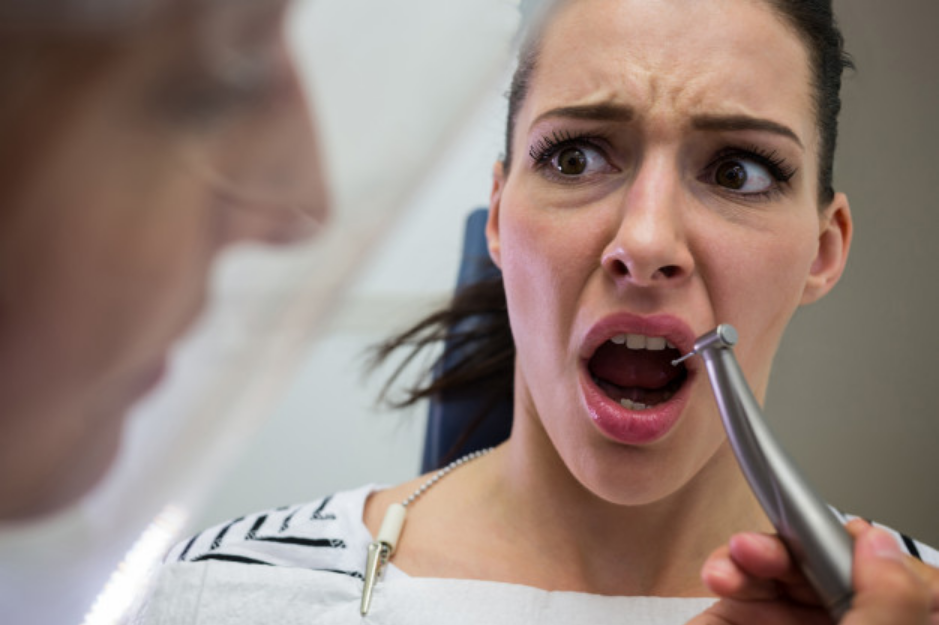Dental Phobia: Know It To Face Dentist with Confidence
Dental phobia or anxiety, the fear of going to the dentist is very common across the world. Reasons and intensity of fear could vary from person to person depending on experience, exposure, culture, and other inherent mental ailments triggering panic attacks. If you are one of those who fear visiting a dentist, don’t worry, you are not alone as surveys suggest that dental phobia or anxiety affects 13% to 24% of people globally. Dental anxiety is disturbing for some but not disabling, but in some cases, this could be challenging as avoiding dental care could worsen the situation.
People with dental phobia know very well that the fear is totally irrational but they fail to control emotional reactions and show avoidance behavior. Thankfully, dentists are trained to help patients manage and control behavioral reactions, but in extreme cases of pathological phobia and anxiety, you might need the assistance of a psychologist trained in anxiety treatment.
Symptoms of Dental Phobia

Some amount of restlessness is pretty common when you visit any doctor. The reason for restlessness could be anything, but when it comes to dental phobia it is mostly the fear of injections, equipment, and of course the pain. Besides the common restlessness, the symptoms of dental phobia could be:
- People with an acute dental phobia might face some trouble in sleeping, the night before the appointment date.
- The building of nervousness resulting in excessive bowel movement, especially nearing the end of the waiting period.
- You might feel physically ill as you are not mentally ready to face the dentist as your mind is preoccupied with a fearful memory.
- Panic reaction seeing dental chair and other instruments used in dental treatments.
- During treatment, you might feel breathlessness.
Dental Phobia Causes
The effectiveness of the dental treatment depends on your readiness and for that, you should share all possible details including dental phobia or anxiety with your dentist. Although the dentist will ask some preliminary questions to know about your level of anxiety, self-disclosure will help him prepare you better either by psychotherapeutic interventions or/and pharmacological interventions. The best possible way to know about dental phobia or anxiety is to know common reasons that cause dental phobia or anxiety. Some of the common reasons are:
- Fear of Pain: It is the most common reason to avoid the dentist, which could be either due to hearsay, or earlier experience. Thankfully, dental procedures are highly sophisticated now which causes minimal pain.
- Fear of Needles: Imagining insertion of a needle in the mouth could be terrifying, more so when one is assuming that it won’t work in time. This is the most absurd kind of fear, especially when one knows that injection in the mouth is just the same and effective as anywhere else.
- Anesthesia Side Effects: If you are fearful of the side effects of anesthesia, like dizziness or nausea, then it is pretty common. All you need to do is follow pre-dose instructions to get desirable results with minimal discomfort.
- Fear of Losing Control: Handing over yourself to the dentist to do necessary procedures on the dental chair could trigger the fear of helplessness. It is pretty common and nothing to worry about as your dentist knows more about the dental system than you.
Dentists are trained to manage dental phobia or anxiety so that dental procedures could be executed as per the best practices. If required your dentist might recommend psychotherapeutic interventions, which could be either behaviorally or cognitively oriented. Alternatively, dentists could control your phobia pharmacologically using either sedation or general anesthesia. In behavior-modification therapies, you will be trained to unlearn unacceptable behaviors and learn muscle relaxation and breathing relaxation through suitable treatments. The most acceptable therapy to manage dental phobia currently is cognitive behavior therapy, in which the content of negative behavior is altered and restructured to improve the emotional control of the patient.
